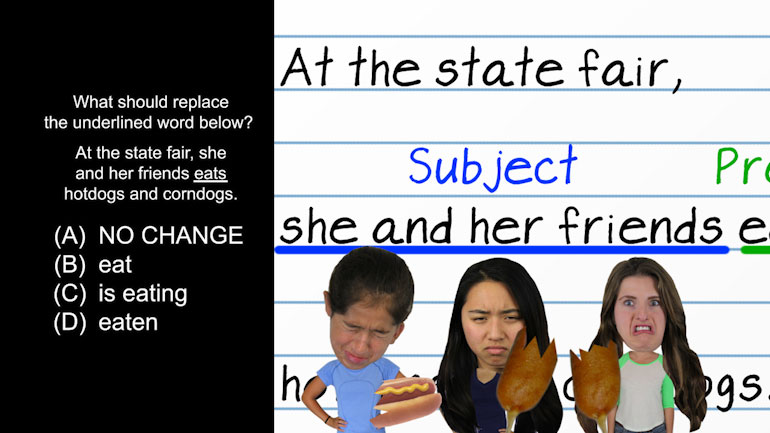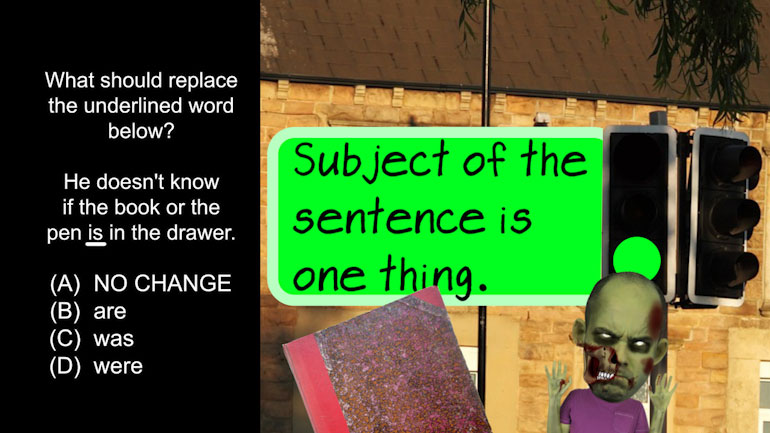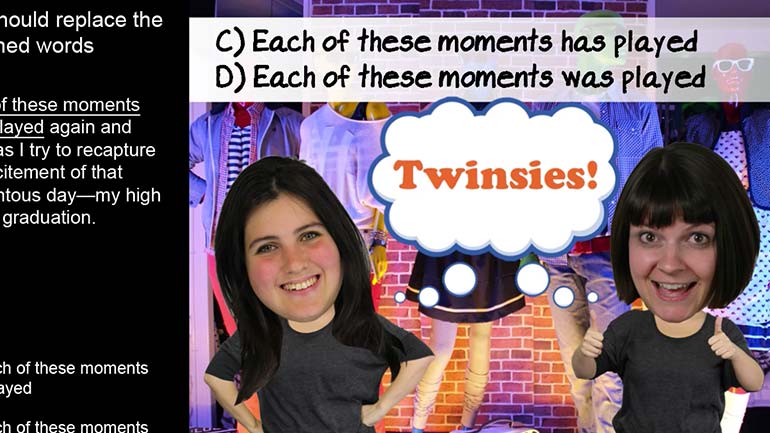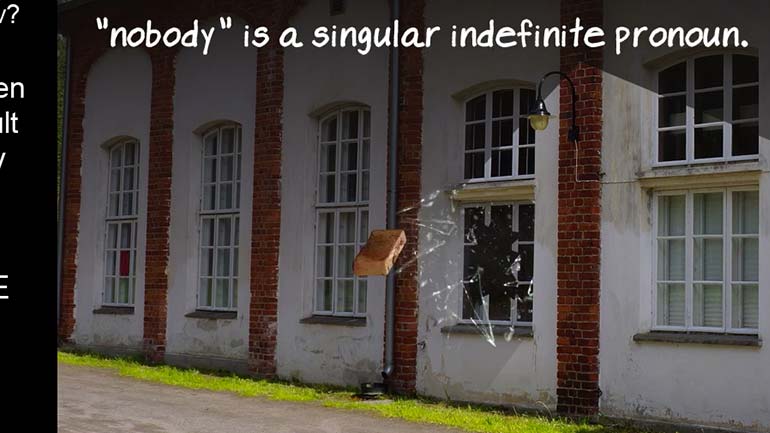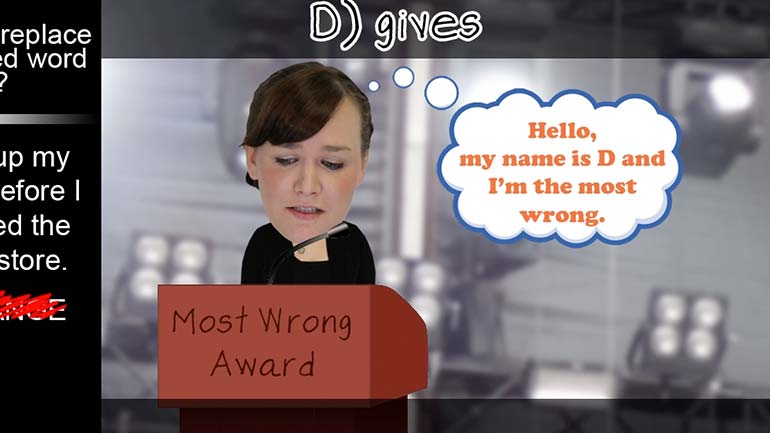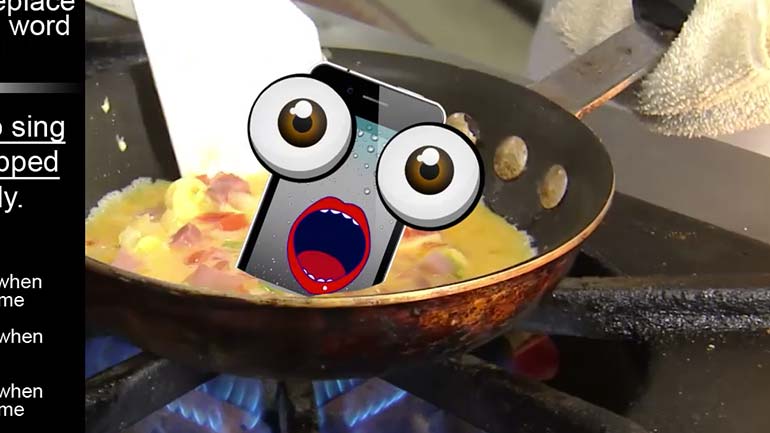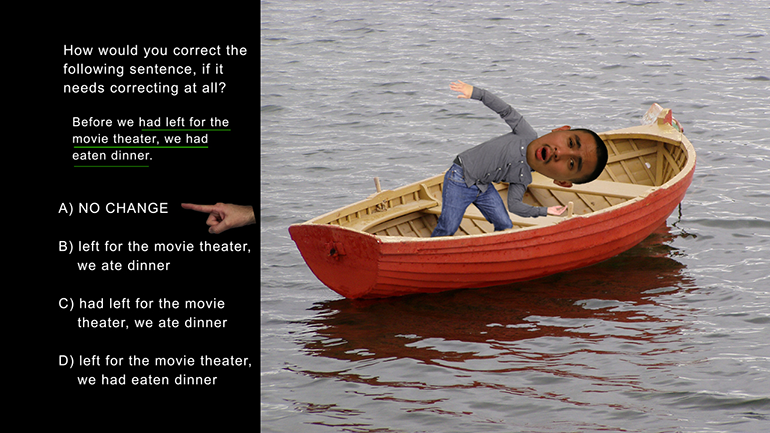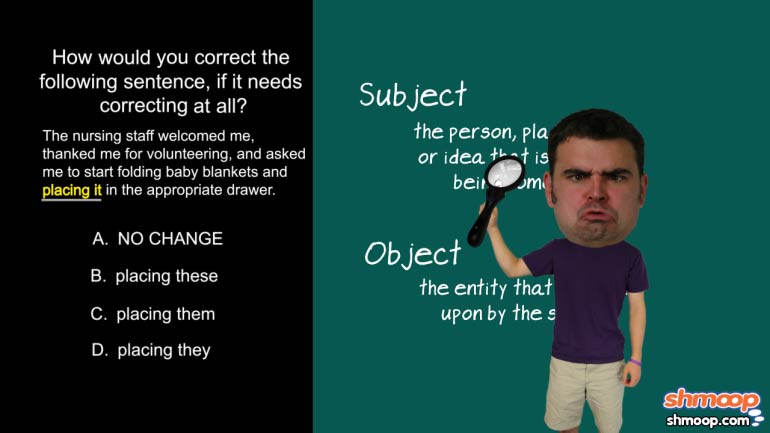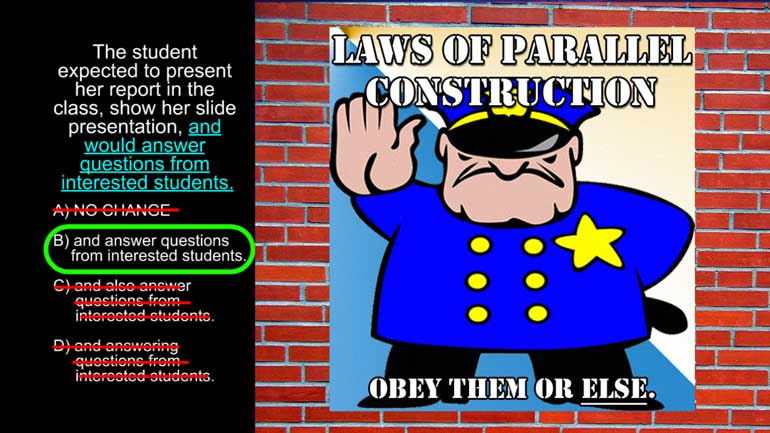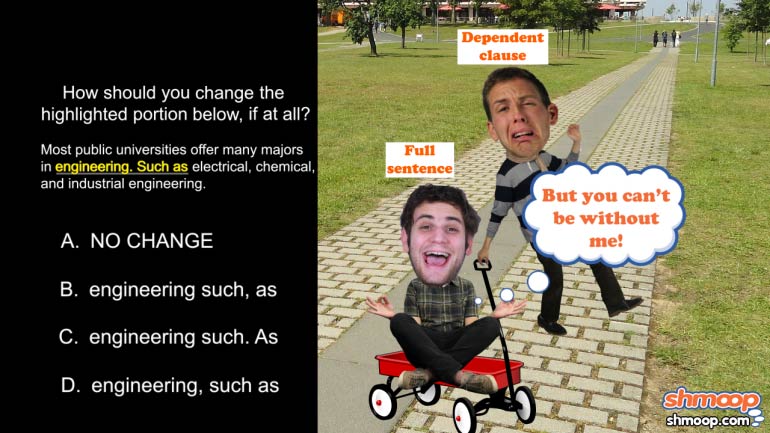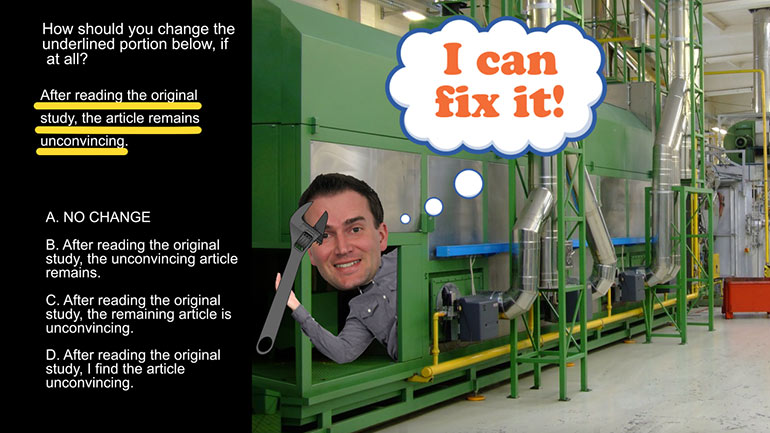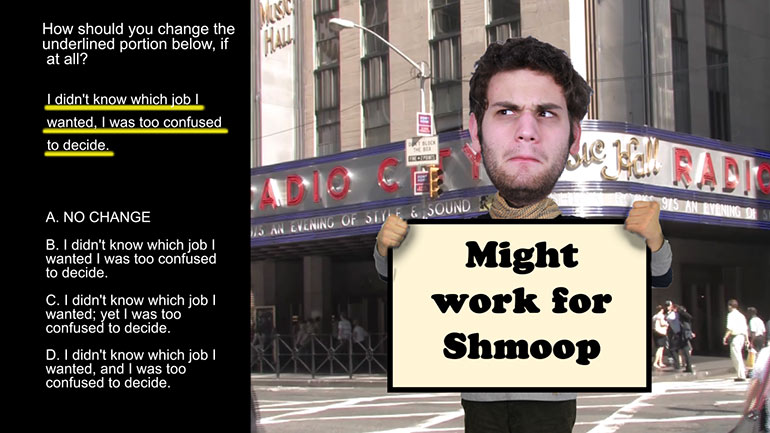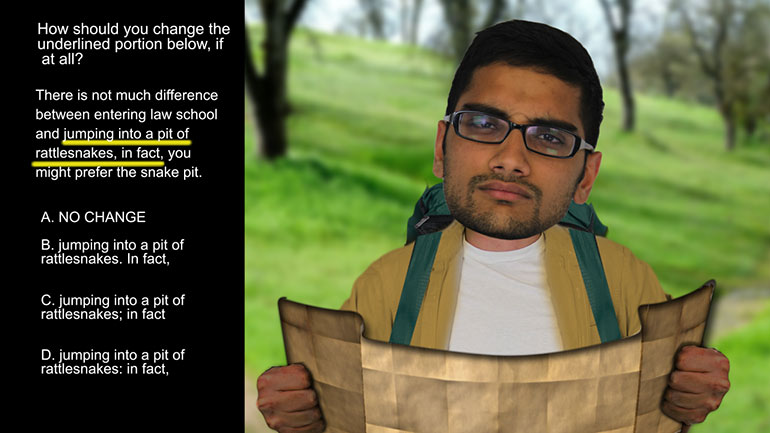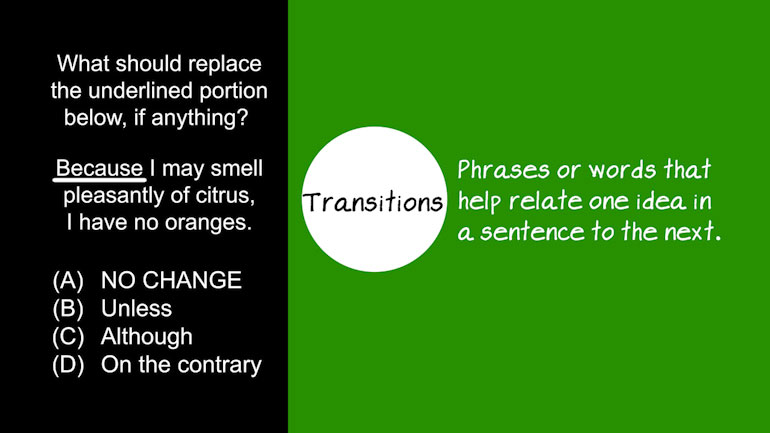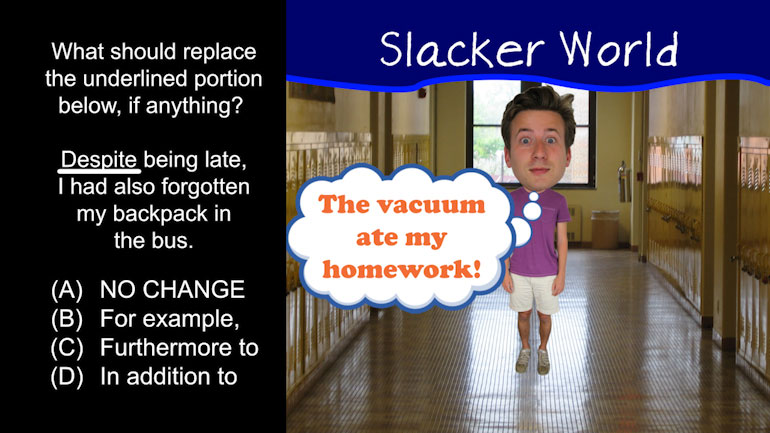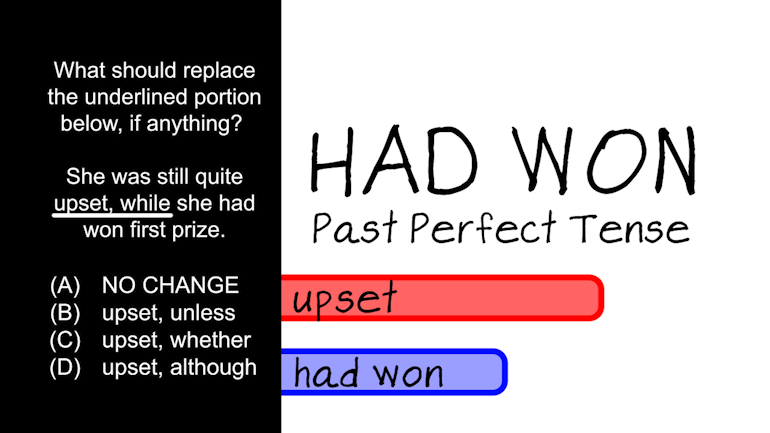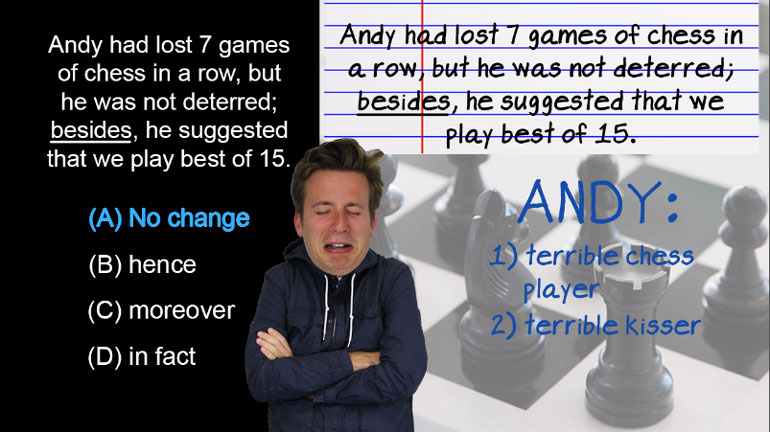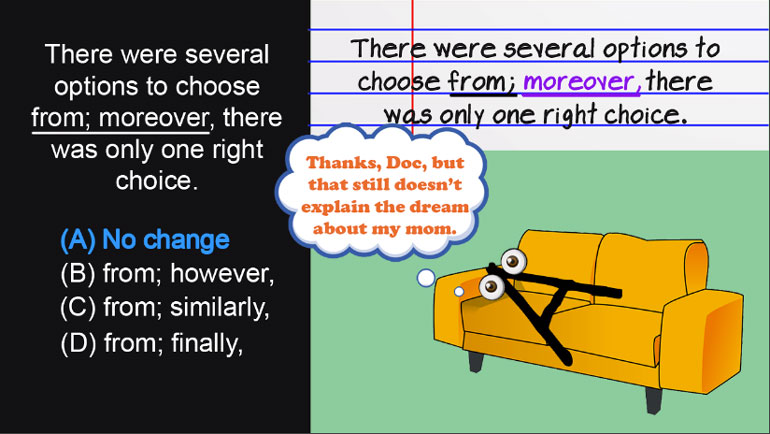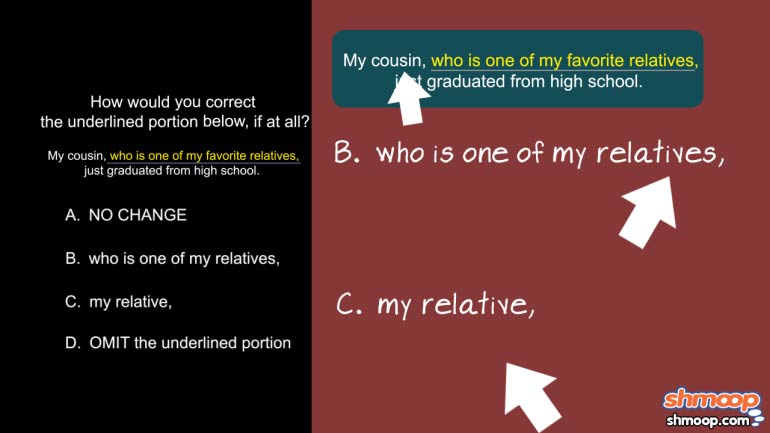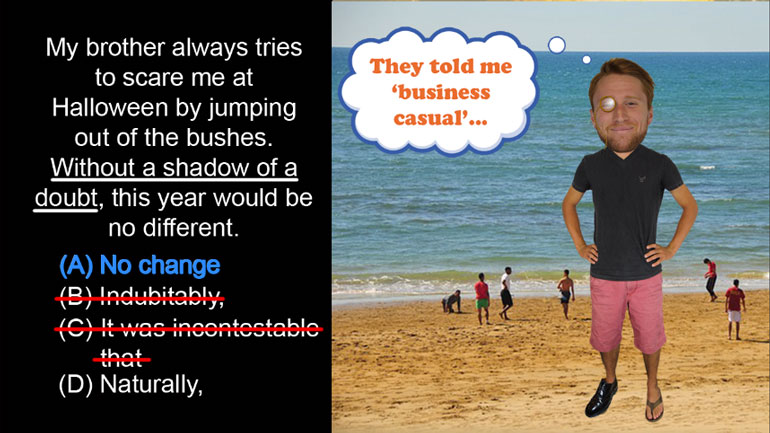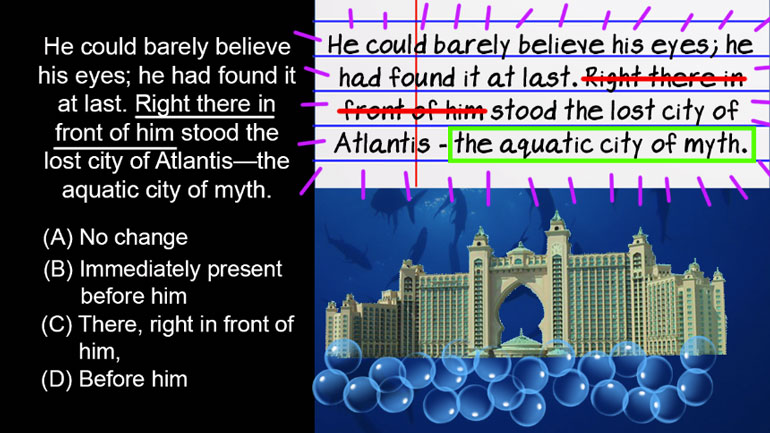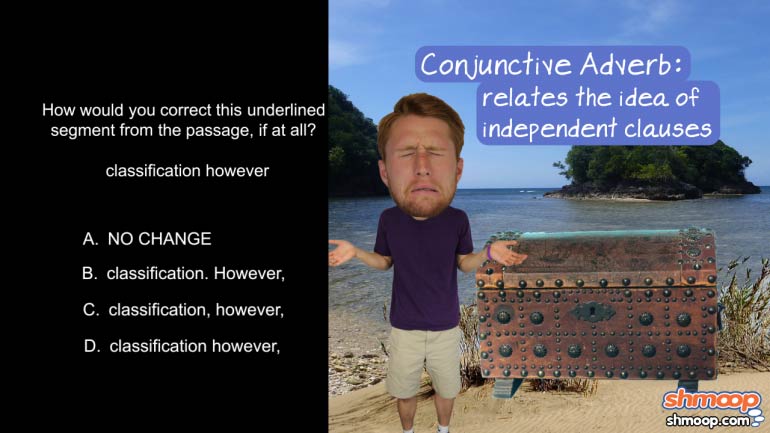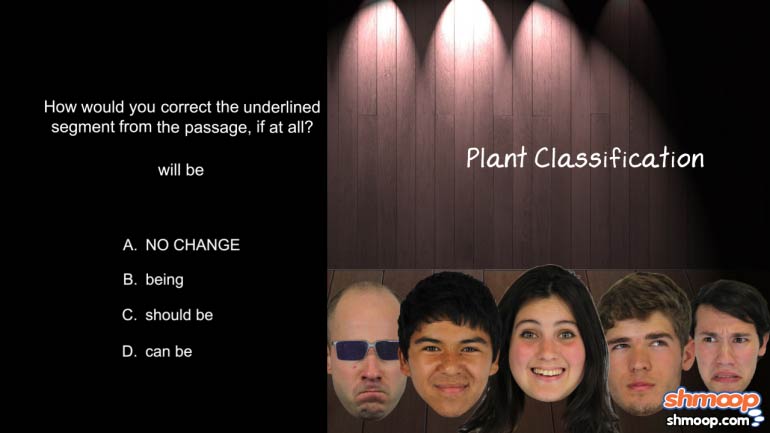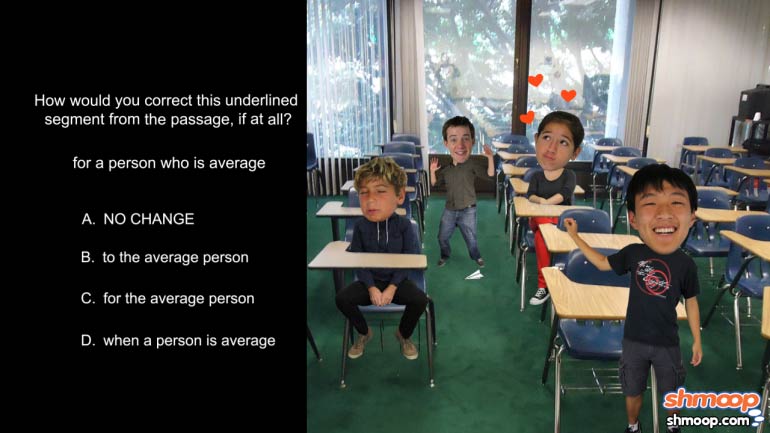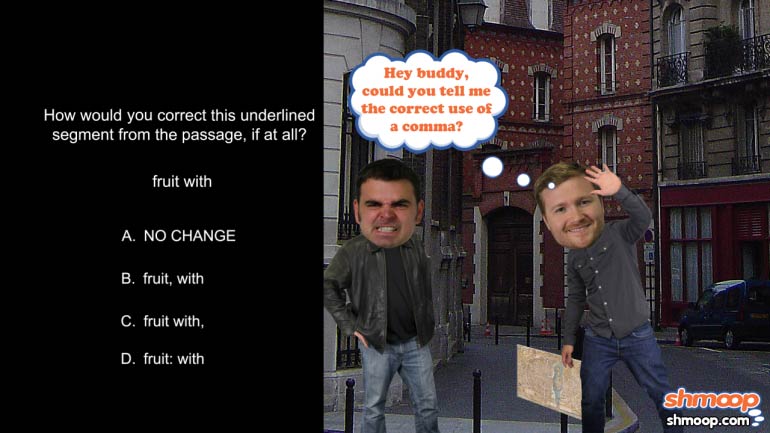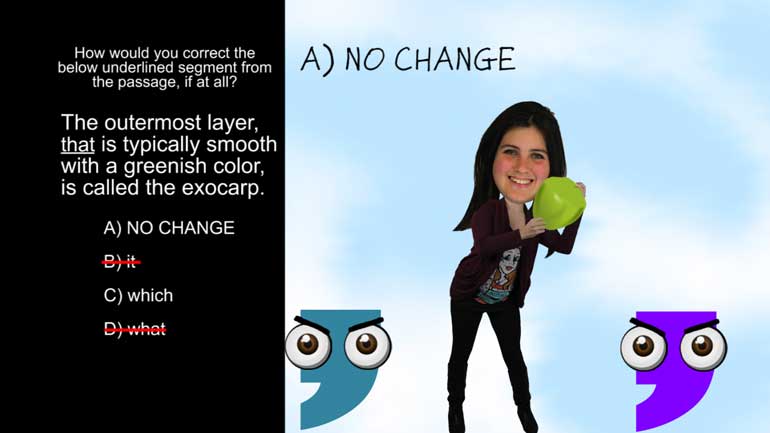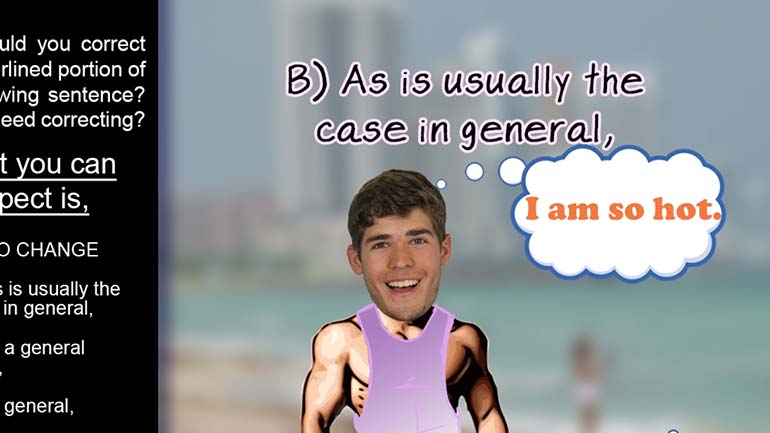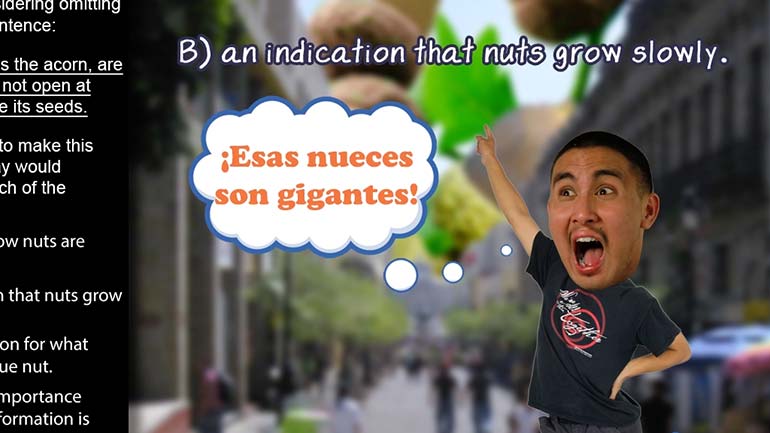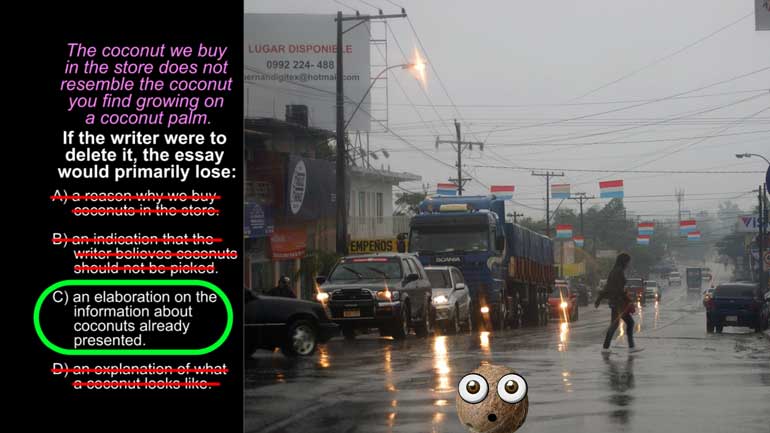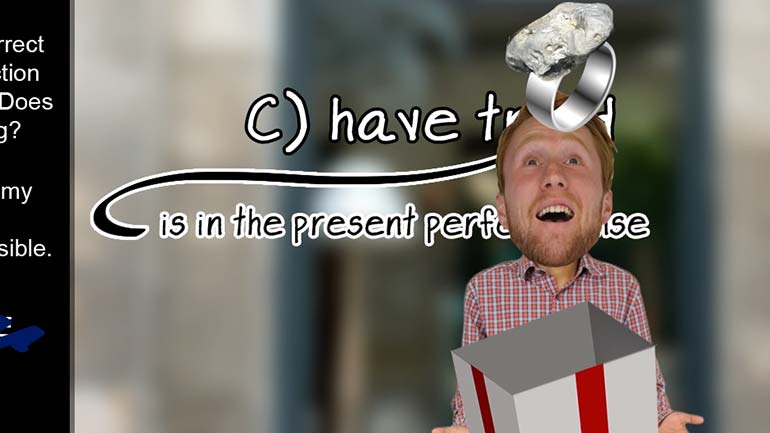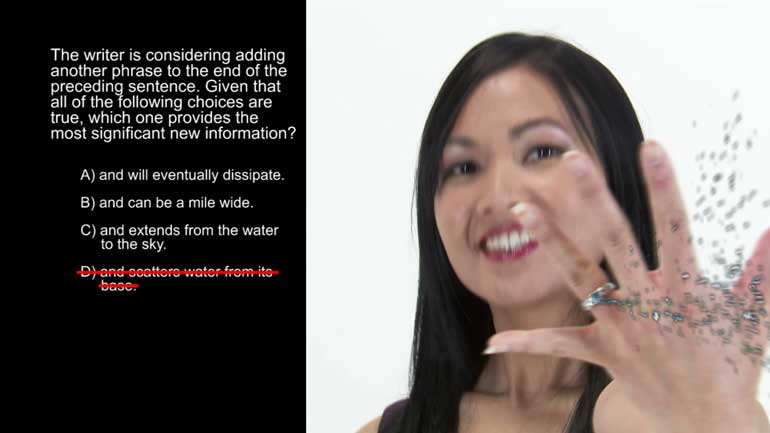ShmoopTube
Where Monty Python meets your 10th grade teacher.
Search Thousands of Shmoop Videos
ACT English Videos 162 videos
ACT English: Punctuation Drill 2, Problem 3. Where does the semicolon fit best?
ACT English: Punctuation Drill 3, Problem 4. Which choice best formats this list of items?
ACT English: Punctuation Drill 2, Problem 5. Which choice indicates the best place for a semi-colon in the sentence?
ACT English 1.1 Sentence Structure 415 Views
Share It!
Description:
ACT English: Sentence Structure Drill 1, Problem 1. Properly punctuating dependent clauses.
Transcript
- 00:04
Here's your Shmoop du jour, brought to you by dependent clauses. They're way needier
- 00:09
than the independent ones.
- 00:12
How should you change the highlighted portion below, if at all?
- 00:16
Most public universities offer many majors in engineering. Such as electrical, chemical,
- 00:24
and industrial engineering.
Full Transcript
- 00:31
Some clauses are just way too dependent.
- 00:34
Unlike their independent cousins, they can't stand on their own as a complete sentence.
- 00:38
Sometimes this is because they don't have the basics of what makes a sentence complete,
- 00:43
i.e. at least one noun and one verb that work as a subject and predicate.
- 00:48
"Bill pukes," for example, is a very short, but totally independent, clause.
- 00:55
We've got the noun, "Bill," which works as the subject, and we've got the verb,
- 01:01
"pukes," which works as the predicate.
- 01:04
If someone tries to shove dependent clauses out the door on their own, they become what
- 01:08
are known as "fragments."
- 01:09
To help dependent clauses avoid this cruel fate, we have to make sure they stay attached
- 01:14
to a full sentence.
- 01:16
As one might suspect, since we spent so much time talking about this, the sentences in
- 01:20
question here have an example of a dependent clause turned fragment.
- 01:24
"Such as electrical, chemical, and industrial engineering," has no subject and no predicate.
- 01:31
It's a bunch of nouns, but no verbs telling us what they're doing, making the clause
- 01:35
totally dependent.
- 01:36
Therefore, we know the period that separates the clause from the preceding sentence is
- 01:40
guilty of turning it into a fragment.
- 01:42
So, we can kick off our elimination process by scratching out choice (A), which claims
- 01:47
that the original sentences are correct.
- 01:49
(C) is super wonky, so it has to go as well. It places a period right smack dab in the
- 01:55
middle of "such" and "as," which doesn't make any sense at all.
- 01:59
These are two words that in general just don't like to be separated.
- 02:04
In this case, "such as" is actually functioning as a relative pronoun, which is a type of
- 02:09
pronoun that introduces a relative clause.
- 02:13
And what is a relative clause? It's a clause that modifies a word, phrase, or idea in the
- 02:17
main clause.
- 02:18
So, in our sample sentence, "such as electrical, chemical, and industrial engineering" modifies
- 02:24
"majors in engineering" by specifying the kinds of majors we're talking about
- 02:29
here.
- 02:30
Since relative clauses are always busy modifying something in the main clause, they're always
- 02:34
dependent on them.
- 02:36
If one of them is ever separated from the thing it's modifying, it's doomed to be
- 02:39
a fragment.
- 02:40
Choice (B) is a little bit better than (A) and (C), because it's not trying to turn
- 02:45
our dependent relative clause into a fragment by using a period.
- 02:50
However, like we said before, "such" and "as" are two words that usually hate to
- 02:54
be separated, even if it's with a comma. We've now narrowed our choices down to (D),
- 02:59
which correctly keeps the relative dependent clause connected to the main clause with a
- 03:02
comma, without splitting apart "such" and "as."
- 03:06
These dependent clauses may be needy, but they're nothing compared
- 03:28
to the codependent ones...
Related Videos
ACT English: Punctuation Drill 2, Problem 2. Where should the semi-colon be placed?
ACT English: Punctuation Drill 3, Problem 1. How should this sentence be changed so that it is grammatically correct?
ACT English: Punctuation Drill 3, Problem 2. How should we properly hyphenate the words in this sentence?
ACT English: Punctuation Drill 3, Problem 4. Which choice best formats this list of items?
ACT English: Punctuation Drill 2, Problem 1. Which choice of punctuation best completes the sentence?
























